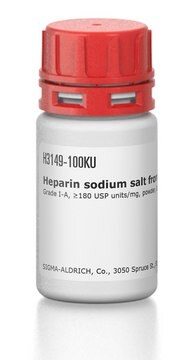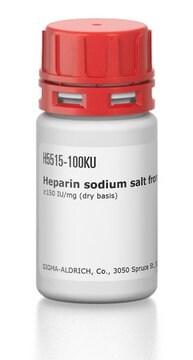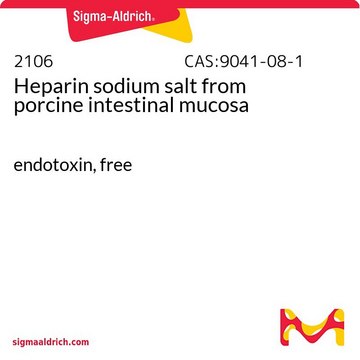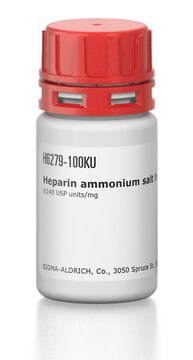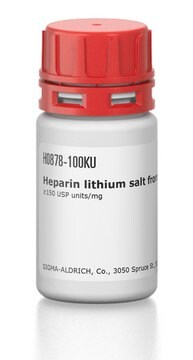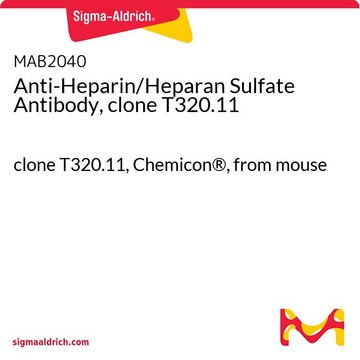375095
Heparin, Sodium Salt, Porcine Intestinal Mucosa
Synonym(s):
Heparin, Sodium Salt, Porcine Intestinal Mucosa, HEP, Na
About This Item
Recommended Products
form
lyophilized
Quality Level
specific activity
≥160 USP units/mg dry wt
manufacturer/tradename
Calbiochem®
storage condition
OK to freeze
impurities
≤0.5 EU/mg Endotoxin
solubility
water: 50 mg/mL
shipped in
ambient
storage temp.
15-25°C
SMILES string
[Na+].[S](=O)(=O)(NC1C(OC(C(C1O[S](=O)(=O)O)OC4OC(C(C(C4O[S](=O)(=O)O)O)O)C(=O)O)CO)OC2C(OC(C(C2O)O[S](=O)(=O)O)OC3C(OC(C(C3O)NC(=O)C)O)CO[S](=O)(=O)O)C(=O)O)O
InChI
1S/C26H42N2O37S5.Na/c1-4(30)27-7-9(31)13(6(56-23(7)39)3-55-67(43,44)45)58-26-19(65-70(52,53)54)12(34)16(20(62-26)22(37)38)60-24-8(28-66(40,41)42)15(63-68(46,47)48)14(5(2-29)57-24)59-25-18(64-69(49,50)51)11(33)10(32)17(61-25)21(35)36;/h5-20,23-26,28-29,31-
General description
Warning
Other Notes
Ehrlich, B.E., et al. 1994. Trends Pharmacol. Sci.15,145.
Legal Information
Storage Class
11 - Combustible Solids
wgk_germany
WGK 2
flash_point_f
Not applicable
flash_point_c
Not applicable
Certificates of Analysis (COA)
Search for Certificates of Analysis (COA) by entering the products Lot/Batch Number. Lot and Batch Numbers can be found on a product’s label following the words ‘Lot’ or ‘Batch’.
Already Own This Product?
Find documentation for the products that you have recently purchased in the Document Library.
Customers Also Viewed
Our team of scientists has experience in all areas of research including Life Science, Material Science, Chemical Synthesis, Chromatography, Analytical and many others.
Contact Technical Service